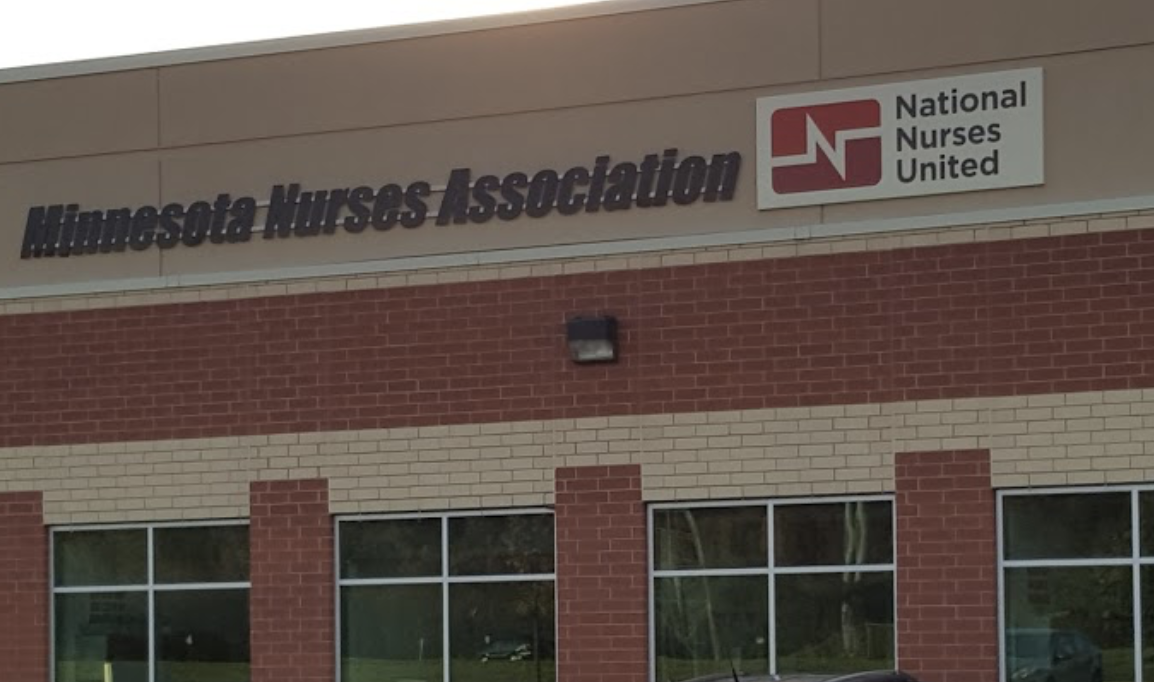

Share
At a Wednesday afternoon press conference, nurses represented by the Minnesota Nurses Association (MNA) outlined in raw and unwavering detail the challenges they are facing as frontline workers in the midst of a global health crisis.
The day to day experience combating COVID-19 has shown nurses that hospitals are unprepared and unequipped to protect themselves and other healthcare workers from a worsening situation of infectious patients. For these nurses, COVID-19 represents a natural disaster that has turned into a man-made disaster similar to Hurricane Katrina.
Nurses made clear that they come to work with feelings of “tension and fear” and in their opinion, the lack of preparation by both hospital workers and the federal government is straining their ability to both provide care and keep themselves and those they come in contact with safe.
The main message nurses wanted to deliver is that they are asking hospitals to be transparent and meet with nurses collectively to create preparedness plans in anticipation of an escalating crisis and meet resource needs in a joint effort to protect patients. MNA President Mary C. Turner, is asking for “hospitals to meet the nurses to address these dangerous conditions” and to provide real solutions.
“We’re demanding that this meeting happen in the next 5 days. It is past time to address concerns about adequate protection against the virus’ spread, hospital’s response plans, real plans to adequately staff hospitals, to provide needed education to staff, and to be transparent in communication of plans for the public and healthcare workers who provide needed care,” Turner said. “We cannot afford to wait any longer to develop real solutions. We ask all elected officials, patients and community members to partner with us in demanding hospitals meet with nurses to address these dangerous conditions.”
Emily Allen, a Registered Nurse at St Joseph’s Hospital had just completed three 12 hour shifts over the weekend and noted that the ICU is looking bad. For Allen, the deteriorating conditions clearly indicate that “we need to be better prepared and have a plan.”
“In ICU we see the people coding. We see the people on ventilators. There’s lots of unanswered questions, and we’re looking to our administration to give us those answers,” said Allen. “We need to be better prepared and have a plan.”
The Minnesota Nurses Association has surveyed its members, and the majority of 1,000 respondents reported a lack of preparedness. MNA has also requested preparedness plans and an assessment of quantities of proper equipment from Minnesota hospitals through the labor-management Request for Information process (RFI).
ER nurse at United Hospital in St. Paul, Cliff Willmeng, explained that there are, “critical blockages” getting in the way of taking care of people. Moreover, Willmeng explained that they don’t have access to decision making bodies, explaining that CEO’s are making decisions about patients, therefore, entire communities. Willmeng explained that,” we are not addressing this fast enough.” He suggested that in order to increase access and care, unused facilities like pro sports stadiums and arenas should be opened up for medical use.
Nurses are regularly coming in contact with suspected contagious patients and those who can easily become infected. Their concerns are numerous and mostly focus on a lack of personal protective equipment (PPE), guidelines on using PPE, patient isolation plans, proper training, and other issues that have left them afraid and confused about how to care for patients.
The CDC recently rolled back guidelines on PPE to promote using looser, ill-fitting surgical masks instead of more protective N95 masks. Nurses are also concerned the CDC is no longer recommending isolating suspected or positive infectious patients in isolation rooms.
In a press statement, the union stated, “Minnesota lawmakers and healthcare facilities, however, have the ability to provide stronger protections for healthcare workers.”
All nurses who experience a COVID-19 related incident are encouraged to report it on this COVID-19 Incident Reporting Form. MNA will disclose trends in incidents as they’re being analyzed on this same page for healthcare workers and the public to follow.

